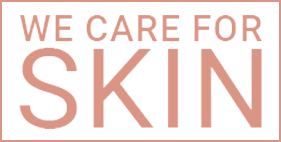From being a sign of puberty to being considered a medical problem, acne has constantly been bothering people from all walks of life. The exact cause of acne is still unknown, but the current understanding of its pathogenesis is continuously evolving. Generally, these annoying tiny, red, and sometimes painful bumps can be blamed on the interplay of four factors: overproduction of sebum, hyperkeratinization of the skin cells, bacterial infection specifically Cutibacterium acnes – and inflammation.
In addition, other factors were found to be related to its development and exacerbation. Lifestyle is one of those major factors. Your daily routine, diet, and hygiene can greatly affect the development process of acne. Below are some habits and practices you might have been unconsciously doing that could trigger or worsen your acne.
Habits that make acne worse
1. Picking or popping pimples
Pimples mainly contain pus, dead skin cells, dirt, and bacteria. Popping them surely gets most of those out, but some of them are pushed deeper. Worse, the skin is getting ruptured and damaged which might cause further infection, inflammation, and even discoloration and scarring.
2. Not having enough sleep
Contrary to popular belief, sleeping late does not contribute to acne, it is the lack of it. Lack of sleep triggers a cascade of stress responses from the body, specifically causing a spike in cortisol levels. This dysregulation causes an increase in sebum production and inflammation.
3. Sleeping with makeup on
Sleeping with your makeup on is probably one of the worst things you can do to your skin. Even if they are non-comedogenic, sleeping with makeup prevents the skin from recovering well and can definitely cause acne.
Aside from that, it can also cause eye irritation and could damage your vision. So, make sure to wash that makeup off before hitting the bed, or at least use wipes and a good makeup remover.
4. Washing your face too much
Washing your face excessively can strip off the skin of its essential oils and of the moisture it needs. As a response, the face produces more sebum to counteract the dryness caused by too frequent washing - excess sebum can clog the pores and cause acne.
As a general rule, it is advisable to wash the face twice a day: once in the morning, and in the evening before sleeping.
5. Using too much face scrub
You might have heard it by now, face scrubs are not your “friends”, and they are doing more damage to your face than good. Scrubbing can irritate the skin, cause inflammation, and make existing acne worsen.
Not to be confused, a good exfoliation is beneficial for the face now and then, but overdoing it, especially with a very harsh face scrub should never be it. Instead of scrubbing, use a mild cleanser and exfoliate only once or twice a week.
6. Not cleaning your phone
It is not news anymore that your phone is a breeding ground for bacteria. A study even found that phones contain ten times more bacteria than most toilet seats. Imagine that amount of bacteria comes in contact with your face when taking a call. So make sure to regularly clean your phone to avoid any unwanted breakouts.
7. Not changing pillowcases
Speaking of stuff that comes in contact with your face, your pillowcases probably come in first. Pillowcases can harbor dead skin cells, oil, and bacteria especially when not changed and washed often. These can clog your pores and cause acne when they come in contact with your skin.
Similarly, friction between the skin and the pillowcase can irritate the skin and cause flare-ups and breakouts. Change your pillowcases every week and choose something that has a soft fabric.
8. Changing skincare products too often
Finding the right skincare products for you is a journey that can be really challenging. The market is overflowing with products designed for acne-prone skin, but your goal is not to go through all of them to find one that suits your needs.
Products take time to work, so give them around 2 to 4 weeks before ditching them and trying out a different one. Better yet, consult your dermatologist, it’s definitely better to have an expert weigh in before spending money on new products.
9. Having a bad diet
There is no study directly relating any food to acne, but certain foods are definitely linked to its development. Sugary, starchy, and processed food are said to be linked to acne but there is no need to totally rid your diet of these items, moderation is still the key.
It is also important to talk to your dermatologist and consult a nutritionist before making drastic changes to your diet. You might be depriving yourself of your favorite foods for no good reason at all.
10. Smoking and drinking
Vices like smoking and drinking alcohol have been proven to wreak havoc on the body. Smoking in particular has been found to have a direct correlation with post-pubertal acne in which the clinically non-inflammatory type—APAA (atypical post-adolescent acne or smoker’s acne) is the most common.
Alcohol, on the other hand, causes dehydration, collagen depletion, dullness, and acne. It can also dramatically affect the quality of sleep one gets, thus, can trigger a stress response and a spike in cortisol that is linked to acne development.
Should you see a dermatologist?
Acne can manifest in a range of ways. Sometimes they resolve on their own, but most of the time they require some form of intervention - be it an over-the-counter cream like benzoyl peroxide (Benzac) and salicylic acid or prescription drugs like isotretinoin (Acnetrex) and antibiotics.
It is best to consult a dermatologist for mild to severe cases of acne or when breakouts become more frequent and they are starting to affect your day to day life. They can assess your condition and monitor your treatment especially since most medications can cause side effects.
References
-
Capitanio, B., Sinagra, J. L., Ottaviani, M., Bordignon, V., Amantea, A., & Picardo, M. (2009). Acne and smoking. Dermato-endocrinology, 1(3), 129–135. https://doi.org/10.4161/derm.1.3.9638
-
Jordan, L., & Baldwin, H. E. (2016). Stratum Corneum Abnormalities and Disease-Affected Skin: Strategies for Successful Outcomes in Inflammatory Acne. Journal of Drugs in Dermatology : JDD, 15(10), 1170–1173.
-
Martin, E. (2017). Your cell phone is 10 times dirtier than a toilet seat. Here's what to do about it. University of Michigan Institute for Healthcare Policy & Innovation. From https://ihpi.umich.edu/news/your-cell-phone-10-times-dirtier-toilet-seat-heres-what-do-about-it
-
Tan, J. K., & Bhate, K. (2015). A global perspective on the epidemiology of acne. The British Journal of Dermatology, 172 Suppl 1, 3–12. https://doi.org/10.1111/bjd.13462
-
Zaenglein, A. L., Pathy, A. L., Schlosser, B. J., et al. (2016). Guidelines of care for the management of acne vulgaris. Journal of the American Academy of Dermatology, 74(5), 945–73.e33. https://doi.org/10.1016/j.jaad.2015.12.037
Article Reviewed by Dr. Carolina Carpio


